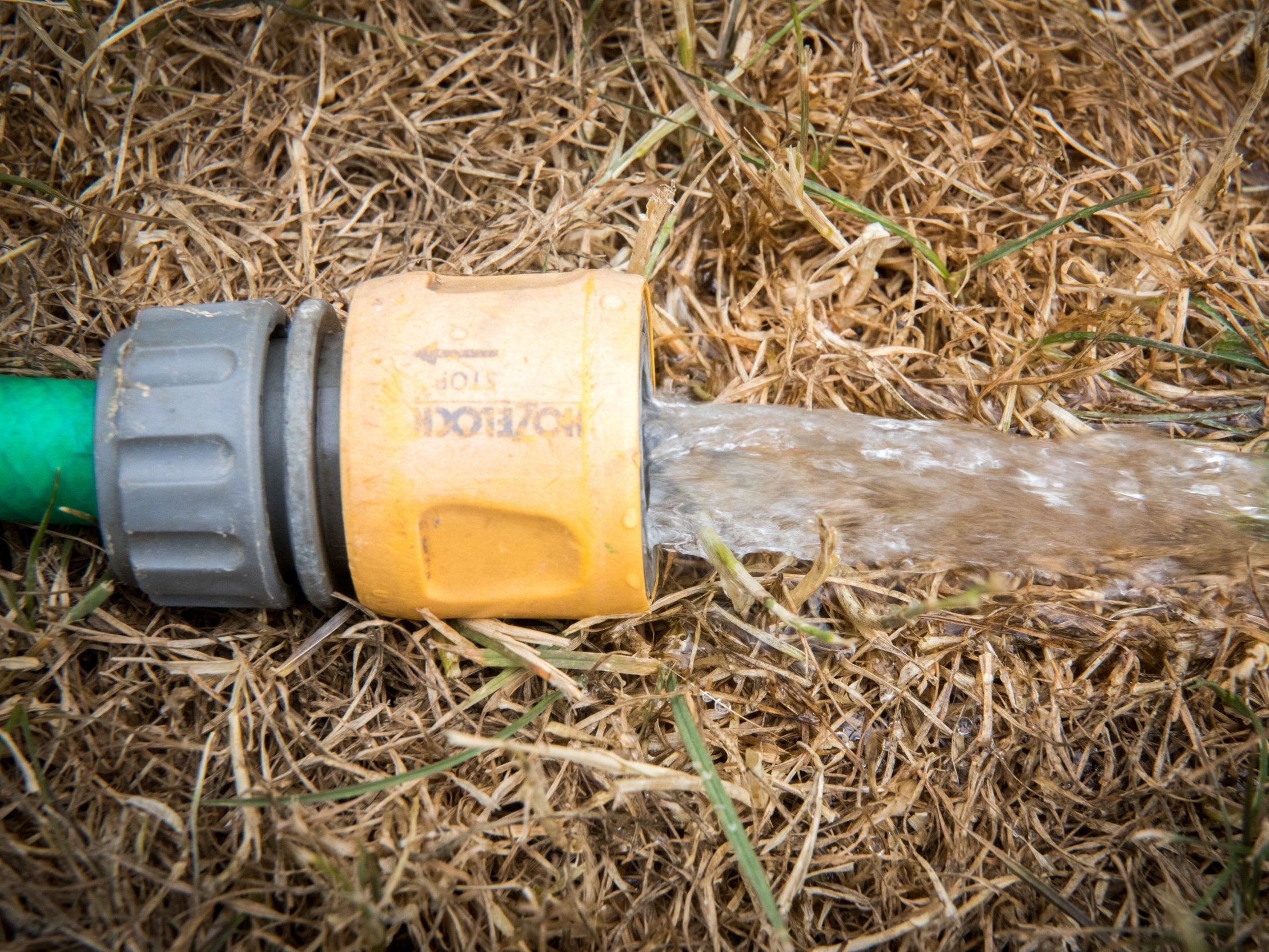Is there a hosepipe ban in my area?
Water conservation becoming more pressing as England suffers driest July since 1935

Your support helps us to tell the story
From reproductive rights to climate change to Big Tech, The Independent is on the ground when the story is developing. Whether it's investigating the financials of Elon Musk's pro-Trump PAC or producing our latest documentary, 'The A Word', which shines a light on the American women fighting for reproductive rights, we know how important it is to parse out the facts from the messaging.
At such a critical moment in US history, we need reporters on the ground. Your donation allows us to keep sending journalists to speak to both sides of the story.
The Independent is trusted by Americans across the entire political spectrum. And unlike many other quality news outlets, we choose not to lock Americans out of our reporting and analysis with paywalls. We believe quality journalism should be available to everyone, paid for by those who can afford it.
Your support makes all the difference.UK utility companies are beginning to introduce hosepipe bans to conserve water after England recorded its driest July since 1935.
South East Water have announced prohibitions for Kent and Sussex coming into effect from Friday 12 August and running until further notice in response to an arid summer that saw southeastern England experience just 8 per cent of its expected rainfall for the month.
It means that residents of those counties will no longer be allowed to use hosepipes or sprinklers to water their gardens or allotments, clean their cars or fill up swimming or paddling pools and risk a maximum fine of £1,000 if they do so.
The decision follows Southern Water’s move a week earlier to introduce a temporary ban in Hampshire and the Isle of Wight, which comes into effect on Friday 5 August.
The Isle of Man has also introduced its own ban and Welsh Water has announced its own for Pembrokeshire, due to come into affect on Friday 19 August.
So far, those regions are the only parts of the UK to be hit by the restrictions, with other southern firms like Thames Water and Anglian Water saying they have no plans at present to introduce a ban.
The north of England, the Midlands, East Anglia, London, Wales and Scotland are all so far entirely unaffected.
That said, the National Infrastructure Committee’s chairman Sir John Armitt has called on the government to introduce a national hosepipe ban and mandatory water metering to tackle the looming threat of drought.
Sir John called for £20m in new investment, telling The Observer: “You have to pay for [water], one way or another.
“That could be investing in new reservoirs or moving water around the country, as well as stopping leaks.”
His calls were echoed by Mark Lloyd from the Rivers Trust who said: “There needs to be a nationally coordinated publicity campaign to reduce water use, and universal water metering.
“Low flows in rivers are disastrous for wildlife and, ultimately, we need to take much more care of this incredibly precious resource.”
Government ministers have reportedly met with water industry officials and farming groups to discuss how best to respond to drought conditions across Britain.
The UK experienced an average of just 37.7mm of rainfall in July, making it the eighth driest in records stretching back to 1836.
The Met Office said figures showed that England has had its driest eight-month period since the notoriously drought-afflicted summer of 1976 between November 2021 and June 2022.
Over that period, just 421mm of rain fell across England – less than 74 per cent of the 1991-2020 average of 568mm.
This year has also seen record temperatures reached, with 38.1C felt in Santon Downham in Suffolk on 18 July and a record-breaking 40.3C in Coningsby in Lincolnshire on 19 July, prompting chaos across the country and calls for more dramatic action to be taken to address the growing climate emergency.
Southeastern England chalked up 24 days of zero average rainfall between 1 June and 24 July this year, Met Office figures show.



Join our commenting forum
Join thought-provoking conversations, follow other Independent readers and see their replies
Comments